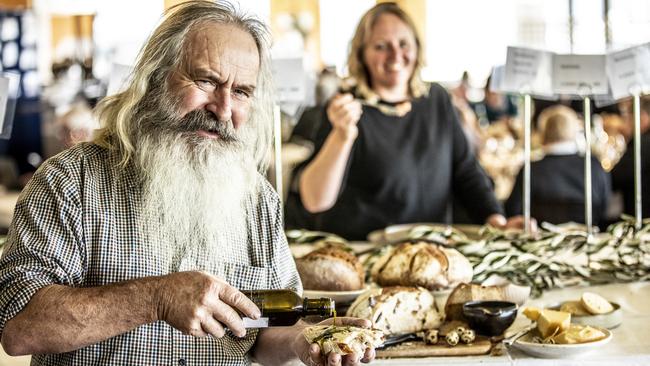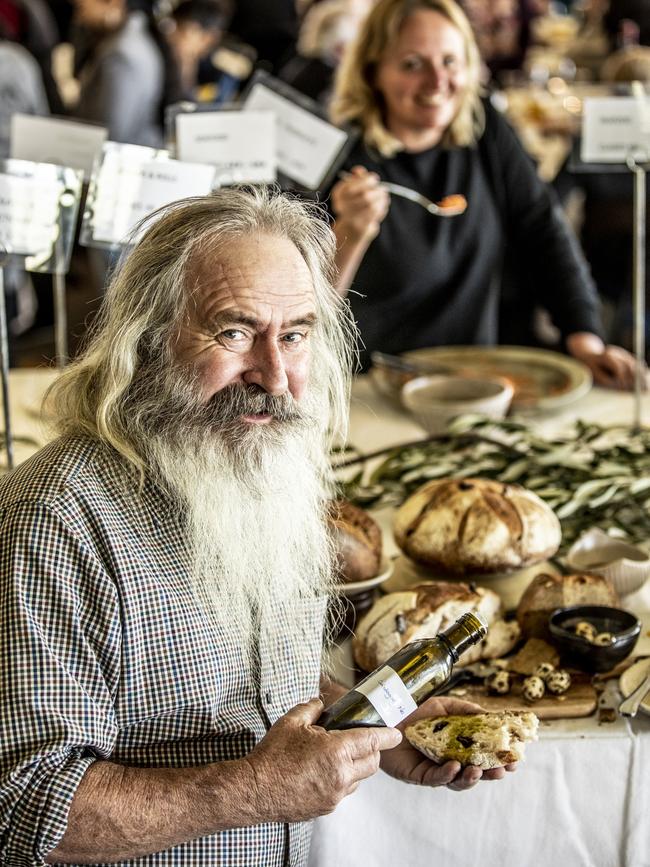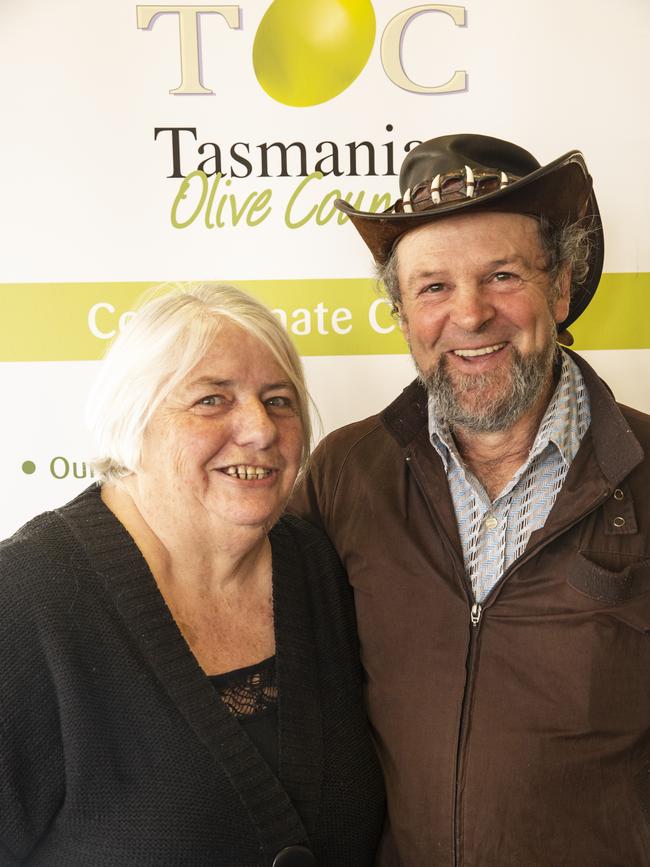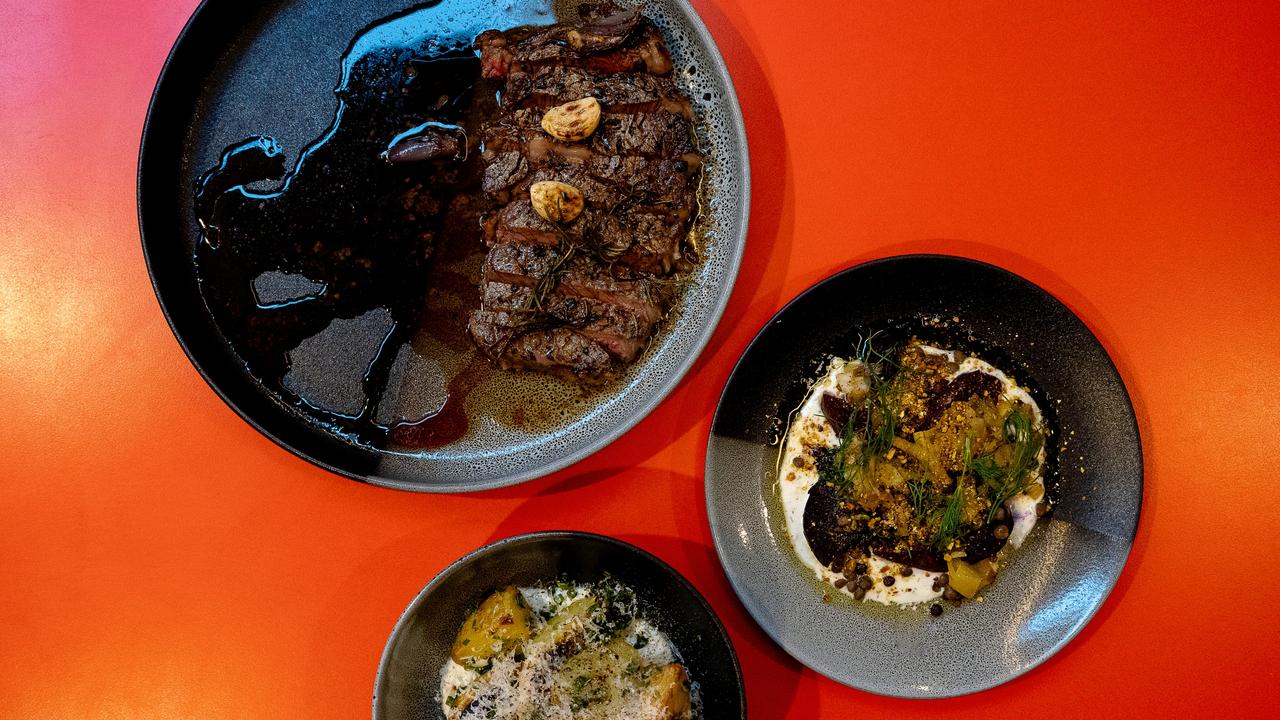Elaine Reeves: Tassie olive oils prove a big hit among judges
Tasmanian olive oils have improved over the years and impressed the judges at the recent Royal Hobart Fine Food Awards, writes Elaine Reeves.

Food and Wine
Don't miss out on the headlines from Food and Wine. Followed categories will be added to My News.
OLIVE oil judge Shane Cummins summed up the plight of many small food producers when he observed recently that: “When you are working by yourself it’s hard to reference everything.”
One solution, however, is to put your product up for judging at an event like the Royal Hobart Fine Food Awards.

“You get to put your oil up in front of a panel of really clever people,” Shane said. “It gets due consideration, you get a score, you get a comment, if you have done really well you get a medal.
“Either way you have a reference point to work from in the future. It’s a good way to check back on all you have done, your time of harvest, your handling, your processing and your storage of the oil.”
And Shane noted that as people got better at all these things “the oils are getting better and better and spending two days judging is a really delightful experience”.
Karen Pridham, who has been an olive oil judge at the awards for about 18 years, and I — who have been covering them for the same time — remember well when almost half the oils would not be judged because they did not come up to standard.
The first day would be spent sorting the discards and on the second day the judges would set about their job with fresh palates.
This year only two oils from 61 entries were not judged, and 14 of them received gold medals — meaning they scored 90 or more points out of 100.
You can, said Shane, “use the show as a tool for where you are going”.
This definitely is what Kathy and Mark Norris of Ten Steps - Waterloo Olives will do.

They have only 800 trees of eight different varieties at Waterloo in the Huon Valley, into which they have “been pouring money for 14 years,” said Mark.
He thought their product was good, but was not sure how it rated. Turns out, it rated well.
The couple have just taken the champion and reserve champion titles the first time they entered the competition.
What’s more, the champion trophy was for a 2018 oil.
I was reminded that Paul Miller, the chief olive judge in 2010, said: “A good Tasmanian olive oil might come up with a use-by date two and a half years beyond bottling, whereas a mainland olive oil from a warmer climate might have only a six-month shelf life as a truly fresh product”.
Mark and Kathy attended a sensory workshop conducted by Soumi Paul Mukhopadhyay, a research officer in sensory and consumer science with the NSW Department of Primary Industries, held when the judging was finished.
It was a taster for a one-day workshop she and the Tasmanian Olive Council will run in November for growers and anyone else wanting to get to grips with olive oil.
The very basics are knowing if your olive oil belongs in a robust or mild category.
Two oils we tasted in the workshop seemed totally unlike each other but they both were pressed from picual olives. The difference was for one sample the olives were picked early and for the other later — when they were much riper (and the resulting oil much milder).
As I tagged along with judges the descriptors of olive oil flavour I heard included almond shell, artichoke, garam masala, grass, green capsicum, leafy vegetables, macadamia, mango, mint, nectarine, pawpaw, peach, rocket, tomato leaves, tomato skins, vanilla and walnuts.
And is that peppery finish like white or Sichuan pepper, peppercorns or Tasmanian native pepperberry?
Does “the promise on the nose transfer to your palate” (does it taste the same as it smells). Does the taste linger in your mouth?
Shane said anyone seeing the words “harmony”, “length” or “lingering”, “balance” or “vitality” in the comments from judges could be well pleased.
And how about using olive oil over ice cream or in a cake — either use would be suitable for the champion oil, said Shane.
Karen Pridham’s comments were: “A beautiful green banana nose, it’s quite floral. I did call it confectionery, a little bit nutty. It’s so harmonious on the palate and the palate extends.”
And Jill Barson, from Melbourne, who tastes for Cobram Estate, said: “I got sweet banana, candy, vanilla, herbaceous marshmallow, marzipan. A very interesting oil, nicely balanced with a short-lived warmth at the end.”
They are pretty positive comments indeed.
Ten Steps -Waterloo Olives are available only at the farm gate, 5662 Huon Hwy, Waterloo.


